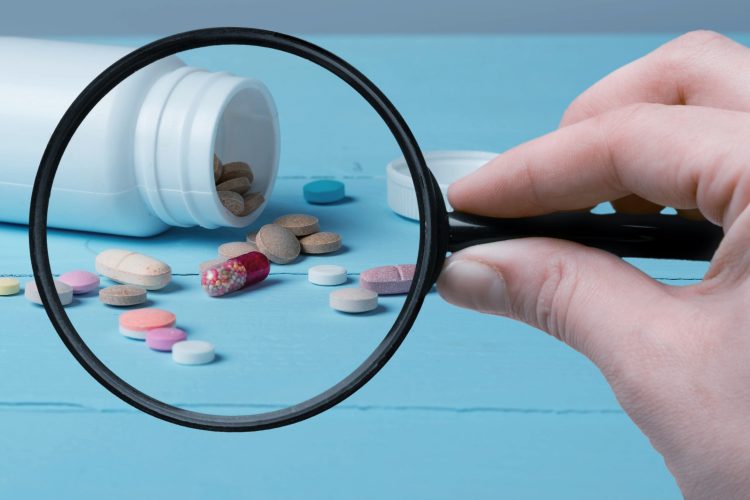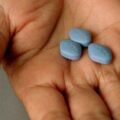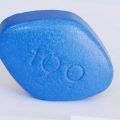Erectile dysfunction or ED, is the most common sex problem that men report to their doctor. It affects as many as 30 million men. ED is defined as trouble getting or keeping an erection that’s firm enough for sex. Though it’s not rare for a man to have some problems with erections from time to time, ED that is progressive or happens routinely with sex is not normal, and it should be treated.
Normal erectile function can be affected by problems with a person’s blood flow, nervous system, and hormone levels. A person may also experience ED due to psychological factors, such as anxiety over sexual performance.
What prescription drugs may cause erectile dysfunction?
Erectile dysfunction (ED) is a common side effect of a number of prescription drugs. While these medications may treat a disease or condition, in doing so they can affect a man’s hormones, nerves or blood circulation. The result may be ED or an increase in the risk of ED.
If you have ED and think that it may be a result of the medication you are using, do not stop taking the medication. If the problem persists, contact your doctor and he or she may be able to prescribe a different medication. Common medications that may list ED as a potential side effect include:
- Diuretics (pills that cause an increase in urine flow).
- Antihypertensives (medication for high blood pressure).
- Antihistamines.
- Antidepressants.
- Parkinson’s disease drugs.
- Antiarrhythmics (medication for irregular heart action).
- Tranquilizers.
- Muscle relaxants.
- Non-steroidal anti-inflammatory drugs.
- Histamine H2-receptor antagonists.
- Hormones.
- Chemotherapy medications.
- Prostate cancer drugs.
- Anti-seizure medications.
What other substances or drugs may cause erectile dysfunction?
Other substances or drugs that can cause or lead to ED include these recreational and frequently abused drugs:
- Alcohol.
- Amphetamines.
- Barbiturates.
- Cocaine.
- Marijuana.
- Methadone.
- Nicotine.
- Opiates.
Aside from the well-known complications that the use and abuse of these drugs can cause, ED is not often mentioned. However, use of these drugs is a risk factor for ED. These drugs not only affect and often times slow down the central nervous system, but can also cause serious damage to the blood vessels, leading to permanent ED.
How is ED Treated?
The treatment that you receive for erectile dysfunction depends on the cause and your personal preferences. Medications, devices, surgery, and psychological counseling may help.
Oral Medications
There are several oral medications (phosphodiesterase inhibitors) that work to increase the blood flow to the penis in response to sexual arousal. These medications work when a man is sexually stimulated and do not cause a constant erection. Oral medications for erectile dysfunction allow sexual relations to happen as they normally would. There are varying types of oral medications and varying doses. While all the medications essentially work the same, some must be taken 20-30 minutes before intercourse and are for that one time use. There are also low-dose medications that can be taken daily and medications that are taken once and last for up to three days.
Injected Medications
Injected medications use a very fine needle to deliver medication to the base or side of the penis. The medication (alprostadil) goes directly to the corpus cavernosum and causes it to fill with blood. Injected medications create an erection in about 5 to 20 minutes. The erection typically lasts for about a half-hour.
Intraurethral Therapy
Intrauethral therapy involves placing a medicated (alprostadil) suppository into the tip of the penis (urethra). The medicated suppository causes increased blood flow to the penis and creates an erection.
Hormone Replacement Therapy
Hormone replacement therapy is used for men with abnormally low testosterone. By taking testosterone, these men are able to achieve an erection.
Penis Pumps
Penis pumps are devices that are placed over the penis. An electric or manual pump removes air and creates a vacuum. The vacuum causes an increased blood flow to the penis, creating an erection.
Vascular Surgery
Some men with blockages in the blood vessels can receive surgery to correct the condition. By surgically opening the blood vessels, blood can flow into the penis and cause an erection.
Penile Implants
Penile implants are semi-rigid rods that are placed on both sides of the penis to position it in a semi-rigid state to allow sexual penetration. The rods cause the penis to be semi-rigid at all times. Inflatable penile implants work in a similar manner, but can be inflated or deflated to allow the penis to be firm only during sexual relations.
Psychological Counseling
Psychological counseling can help resolve feelings of stress, depression, and anxiety that may interfere with arousal and erection. A sex therapist is trained to address specific problems.
Prevention
You can help to prevent erectile dysfunction by staying healthy and avoiding the risk factors that you can control.
ALSO SEE: What is the Street Value of Viagra?






